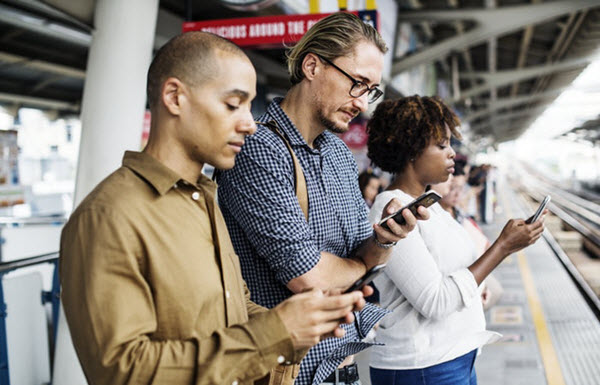Social Media Causing Depression and Anxiety: Is It True?

Social media was designed to make interaction a lot easier. But today, when we look closely, we are socially awkward. This is why social media causing depression and anxiety isn’t surprising.
We are gradually getting so addicted to proving ourselves to the rest of the world that we fail to realize our real self-worth. Social media is silently taking away our happiness without us realizing it.
Breaking Connection to Reality

Social media enables us to portray what we want others to think of us. That means that what other people make out of our message isn’t always similar to what we really mean.
We usually post about the good things that are happening in our lives. It could be pictures of foreign trips, a newborn child or a really happy experience.
The viewer on the other side might not take it as happily as you intended it to be. It makes them start reflecting over the negativity in their monotonous lives.
What people fail to realize is that while other people’s pictures depict happiness, they could be far from reality. No one actually knows about the number of sleepless nights as parents or the hard work you go through to save up for a trip.
Last month, I was out celebrating a friend’s anniversary. I had imagined they are a very happy couple celebrating their 6th anniversary. I had always admired the tourist locations they went to, the places they dined at, and all the romantic quotes they put on social media.
At times, I felt uncomfortable being around such happy people. This was very far from the truth. I realized this after I spent two days with them. They were both influencers on social media, with thousands of people watching them.
In reality, they had more fights than any other couple I knew. They spent their anniversary taking picture-perfect images instead of celebrating their relationship. I understood the hypocrisy of this virtual platform that very moment.
Reality is not always picture perfect. That is why most people do not post reality on social media.
Breakups
In the rush to stay connected with people from around the world, we have missed noticing the people around us. Our addiction to social media has made us distant from our loved ones, the ones who truly value us.
Lack of communication is one of the major reasons why relationships go downhill. Aversion to social media leads to most breakups today. Real relationships need effort and time. They require patience and a lot of hard work to go through phases.
It’s high time we realize that our aversion to social media is leading us to a very delusional land. It’s a land where we might have a thousand friends virtually but absolutely no one in real life. We are real human beings that crave for real human emotions at the end of the day.
Youth Narcissism Increases

A study on students showed that social media has a direct relation with increasing narcissism among teenagers. A classic example of being a narcissist is just being obsessed with one’s self.
Social media platforms like Facebook and Instagram take up most of the time in a youngster’s life today. They get their sense of accomplishment from the number of likes and the response they get on social media. There’s a constant rush to prove their worth in the virtual world.
While the sense of competitiveness is good, they fail to look at the bigger picture. They don’t realize that they are ignoring their real worth. They fail to make appropriate human connections or networks during the most crucial phase of their lives.
Social media platforms certainly make their lives more meaningful and enable them to have a broader outlook. But, at the same time, social media platforms keep them away from making human connections and having real-life experiences.
Smoking, Drinking… Next Social Media
Addiction refers to compulsive behavior resulting in some severe negative effects. Addiction to anything is said to be bad, even to the best of habits. Be it just drinking water or eating vitamins.
Social media addiction is characterized by the urge to constantly check platforms to make updates or look up others. There exists a very thin line between being fond of something and being addicted to it.
Researchers claim social media addiction could be stronger than alcohol or cigarette addiction. To prove that, they hooked people to MRI machines while they spoke highly of themselves, which is what most people do on social media platforms. They noticed that it stimulated pleasure centers of the brain like good food and sex do.
The Toxic Mirror
Social media has now become a toxic mirror. It creates your virtual image. What it shows is what defines you in front of other people.
Our severe addiction to social media has blinded us to see the difference between real and virtual.
We stick to topics that are trending and we follow them blindly without questioning their reality or logic. We show our interest in topics only when we see people interested in them and not when they need attention.
That has made us overlook the importance of connection with our real-world friends.
There is much more to life beyond those blue screens. So, go out, meet people, and make real connections. Life has too much to offer. It can’t all be restricted to a small screen.
Learn to find happiness in the smallest of things. That’s the secret to unending happiness.
Swaraj Das Mohanty
Swaraj Das Mohanty is a Content Marketer at PagePotato. Being a graduate in Journalism from Bangalore University and an ex-Radio Jockey, he helps brands put their best content up front. Beyond work, he is a bookworm who knows to cook & drive in search of lip-smacking street food. Follow him on Instagram at BoredBelly.


